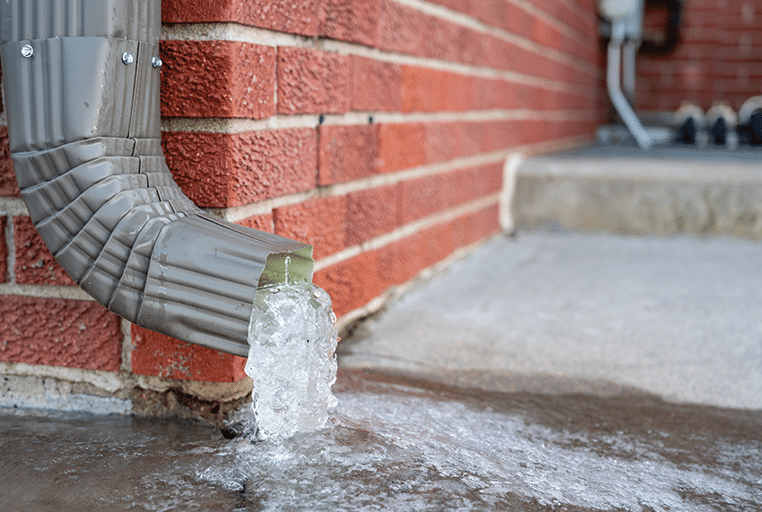Living in a home where you can hear the constant clatter of water hitting the roof can be quite unsettling. The need to reduce roof drainage noise becomes crucial, especially during rainy seasons. This article will guide you through understanding the causes of this noise, and provide solutions to ensure a quieter living environment. By implementing these strategies, you can enjoy the tranquility of your home without the disruption of noisy water drainage.

Understanding Roof Drainage Systems
A roof drainage system is essential for directing water off your roof and away from your home. It prevents water from pooling, which can lead to leaks or damage. However, the efficiency of these systems can sometimes lead to unwanted noise. Understanding the components of your drainage system, including gutters, downspouts, and drains, is the first step in addressing the noise issue.
The Role of Gutters and Downspouts
Gutters and downspouts work together to channel water from the roof to the ground. When water travels through these components, it can create a significant amount of noise. To reduce roof drainage noise, it’s important to ensure that your gutters and downspouts are clean and in good condition. Regular maintenance can help minimize noise by ensuring water flows smoothly.
For more tips on maintaining your roof drainage system, visit Roof Drainage Maintenance.
Common Causes of Roof Drainage Noise
Before you can effectively reduce roof drainage noise, it’s important to identify the root causes. These may include:
- High water flow: During heavy rain, the increased volume of water can lead to more noise.
- Material vibrations: Metal gutters and downspouts can vibrate and amplify sound.
- Water hitting surfaces: When water falls from a height, it can create a loud splashing sound.
Strategies to Reduce Roof Drainage Noise
Install Gutter Liners
Gutter liners can help absorb the sound of water hitting the gutters. These liners, often made from foam or brush material, can significantly reduce roof drainage noise by cushioning the impact of water. They are easy to install and can be a cost-effective solution.
Use a Downspout Diverter
A downspout diverter can redirect water flow, reducing the noise created when water hits the ground. By dispersing water over a larger area, the impact noise is minimized. This is particularly effective in reducing the noise associated with heavy rainfall.
Add Soundproofing Material
Applying soundproofing material to your gutters and downspouts can help reduce roof drainage noise. Materials like rubber or foam can be used to line the inside of gutters, absorbing sound and reducing vibrations.
Extend Downspouts
Extending downspouts further away from your home can also help in reducing noise. By directing water further from the building, you minimize the sound of water hitting the ground near living areas. This simple adjustment can make a significant difference.
Maintaining Your Roof Drainage System
Regular maintenance is key to keeping your drainage system functioning efficiently and quietly. Here are some tips:
- Clean gutters and downspouts regularly to prevent clogs.
- Inspect for any signs of damage or wear.
- Ensure components are securely attached to prevent vibrations.
For more detailed maintenance tips, check out our Sealing Tips.
Consulting a Professional
If you find that noise persists despite your efforts, it may be time to consult a professional. A roofing expert can assess your system and recommend solutions that fit your specific needs. They can provide insights into more advanced soundproofing techniques and materials.
Benefits of Professional Assessment
A professional assessment can help identify underlying issues that may not be immediately apparent. They can offer tailored solutions that take into account the design and materials of your roof and home. This can be a worthwhile investment in maintaining a peaceful home environment.
Conclusion
By understanding the causes of roof drainage noise and implementing effective solutions, you can enjoy a quieter and more comfortable home. Whether it’s through simple adjustments or professional help, there are numerous ways to reduce roof drainage noise. Remember, maintaining a peaceful home is not just about aesthetics, but also about comfort and well-being.
For additional resources, you can visit Maryland Roofers.

FAQ
Why is my roof drainage so noisy?
Roof drainage noise can be caused by high water flow, material vibrations, and water hitting surfaces. Regular maintenance and soundproofing can help reduce this noise.
What materials can reduce drainage noise?
Materials like foam, rubber, and gutter liners can absorb sound and reduce vibrations, helping to minimize noise from roof drainage systems.
How often should I maintain my roof drainage system?
It’s advisable to inspect and clean your roof drainage system at least twice a year, especially before and after the rainy season, to ensure it functions quietly and efficiently.
This article contains affiliate links. We may earn a commission at no extra cost to you.






